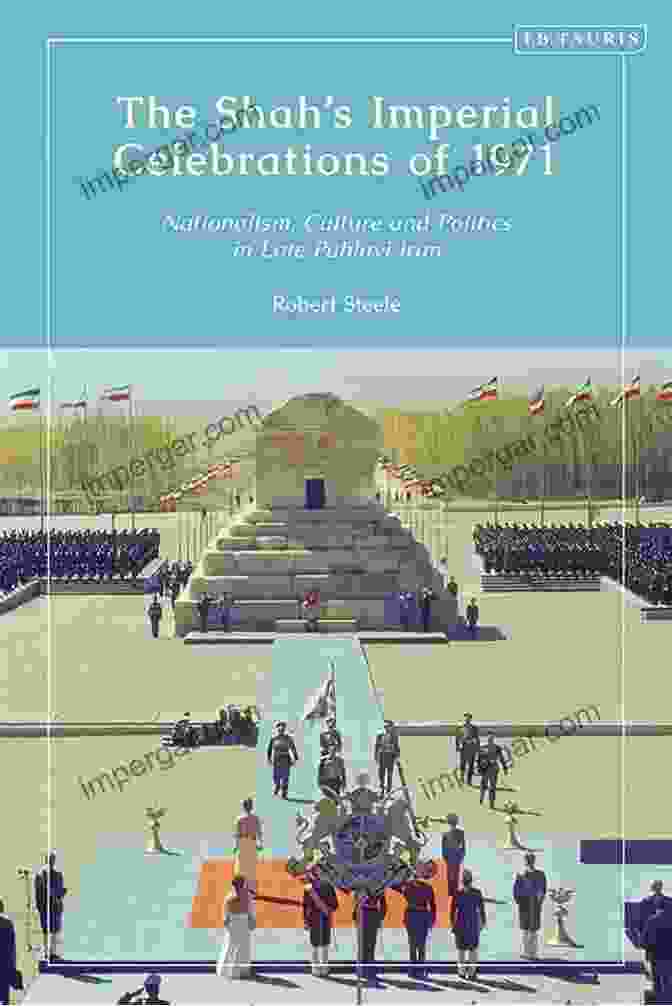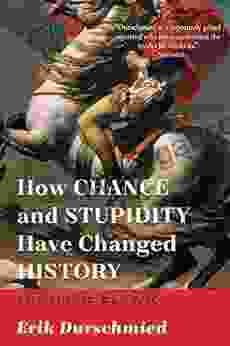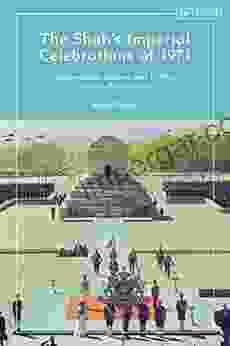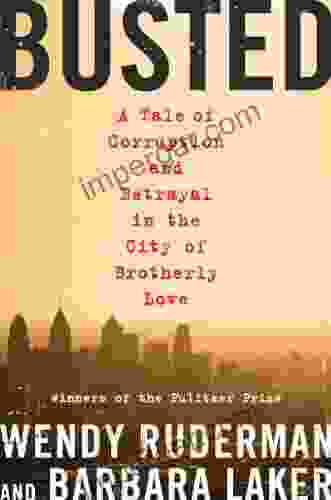Nationalism, Culture, and Politics in Late Pahlavi Iran: A Journey into the Socio-Political Landscape

In the decades leading up to the Iranian Revolution, the country underwent a profound transformation under the rule of the Pahlavi dynasty. The book "Nationalism, Culture, and Politics in Late Pahlavi Iran" offers a comprehensive exploration of this pivotal period, examining the complex interplay of nationalism, culture, and politics that shaped Iranian society.
4.2 out of 5
| Language | : | English |
| File size | : | 19164 KB |
| Text-to-Speech | : | Enabled |
| Screen Reader | : | Supported |
| Enhanced typesetting | : | Enabled |
| Word Wise | : | Enabled |
| Print length | : | 241 pages |
The Rise of Iranian Nationalism
Following the Constitutional Revolution of 1906, a strong sense of Iranian nationalism emerged among the country's intelligentsia. This nationalism was fueled by a desire to revive Iran's ancient glory and to resist foreign influence. Under the reign of Reza Shah Pahlavi (1925-1941),nationalism became a central plank of the government's ideology, with the Shah promoting a cultural revival and a modernization program aimed at strengthening Iran's economic and military power.
The Pahlavi Era
The Pahlavi era was marked by significant cultural and political changes. The government implemented a series of reforms aimed at modernizing Iran, including the of Western education, the emancipation of women, and the suppression of traditional religious practices. These reforms met with resistance from some sectors of society, particularly the clergy and traditionalists.
The Pahlavi regime also faced challenges from the left. The Tudeh Party, a communist-leaning organization, gained significant support among the Iranian intelligentsia and working class. The Shah's attempts to suppress the Tudeh Party led to widespread repression and political unrest.
The Impact of Oil Wealth
The discovery of oil in Iran in the 1960s transformed the country's economy and its relationship with the West. The influx of petrodollars led to rapid modernization and economic growth, but also exacerbated social inequality and political tensions. The Shah's lavish spending on luxury projects and his close ties with the United States alienated many Iranians.
The Cultural Revolution
In an effort to consolidate his power and deflect criticism, the Shah launched a "Cultural Revolution" in 1971. This initiative aimed to promote Iranian culture and values, while also suppressing dissent. The Cultural Revolution included measures such as the promotion of the Persian language, the establishment of a new calendar, and the enforcement of dress codes. However, the Cultural Revolution was seen by many as an attempt to control Iranian society and stifle independent thought.
The Collapse of the Pahlavi Regime
By the mid-1970s, the Pahlavi regime was facing mounting opposition from both the left and the right. The Tudeh Party and other leftist groups criticized the Shah's authoritarian rule and his close ties to the United States. Conservative religious groups condemned the Shah's Western-oriented reforms and his suppression of traditional religious practices.
The combination of political repression, social inequality, and economic stagnation led to widespread unrest. Mass protests erupted in 1978, and the Shah fled the country in January 1979. The Iranian Revolution marked the end of the Pahlavi dynasty and the establishment of an Islamic republic.
The Legacy of the Pahlavi Era
The Pahlavi era was a complex and transformative period in Iran's history. The Pahlavi dynasty's modernization program brought significant economic and social changes, but it also alienated many Iranians and laid the groundwork for the revolution that ultimately toppled the regime. The legacy of the Pahlavi era is still contested today, with some Iranians nostalgic for the Shah's rule, while others condemn it as a period of authoritarianism and repression.
"Nationalism, Culture, and Politics in Late Pahlavi Iran" provides a nuanced and insightful analysis of this pivotal period. The book draws on a wide range of sources, including interviews with key figures, government documents, and contemporary newspapers. It offers a comprehensive account of the rise of Iranian nationalism, the challenges faced by the Pahlavi regime, and the factors that ultimately led to its collapse.
This book is an essential read for anyone interested in Iranian history, Middle Eastern politics, and the complex relationship between nationalism, culture, and politics.

4.2 out of 5
| Language | : | English |
| File size | : | 19164 KB |
| Text-to-Speech | : | Enabled |
| Screen Reader | : | Supported |
| Enhanced typesetting | : | Enabled |
| Word Wise | : | Enabled |
| Print length | : | 241 pages |
Do you want to contribute by writing guest posts on this blog?
Please contact us and send us a resume of previous articles that you have written.
 Book
Book Novel
Novel Page
Page Chapter
Chapter Text
Text Story
Story Genre
Genre Reader
Reader Library
Library Paperback
Paperback E-book
E-book Magazine
Magazine Newspaper
Newspaper Paragraph
Paragraph Sentence
Sentence Bookmark
Bookmark Shelf
Shelf Glossary
Glossary Bibliography
Bibliography Foreword
Foreword Preface
Preface Synopsis
Synopsis Annotation
Annotation Footnote
Footnote Manuscript
Manuscript Scroll
Scroll Codex
Codex Tome
Tome Bestseller
Bestseller Classics
Classics Library card
Library card Narrative
Narrative Biography
Biography Autobiography
Autobiography Memoir
Memoir Reference
Reference Encyclopedia
Encyclopedia Translation Edition Kindle Edition
Translation Edition Kindle Edition Shira Miller
Shira Miller Edward Swick
Edward Swick Trey Cox
Trey Cox Todd Lander
Todd Lander Timothy J Dunn
Timothy J Dunn Pamela Patrick Novotny
Pamela Patrick Novotny Victor Sinadinoski
Victor Sinadinoski Spencer Leigh
Spencer Leigh Steve Solomon
Steve Solomon Steven Taylor
Steven Taylor Theodore Vrettos
Theodore Vrettos Oscar Micheaux
Oscar Micheaux Tim Unmack
Tim Unmack Vincent Power
Vincent Power Catherine Curzon
Catherine Curzon Surya Santoso
Surya Santoso Marnia Robinson
Marnia Robinson Tibor Scitovsky
Tibor Scitovsky Steven L Emanuel
Steven L Emanuel
Light bulbAdvertise smarter! Our strategic ad space ensures maximum exposure. Reserve your spot today!

 Jaylen MitchellViscount Breckenridge To The Rescue: A Captivating Historical Romance That...
Jaylen MitchellViscount Breckenridge To The Rescue: A Captivating Historical Romance That... Victor HugoFollow ·12.4k
Victor HugoFollow ·12.4k Rudyard KiplingFollow ·10.6k
Rudyard KiplingFollow ·10.6k Adrien BlairFollow ·7.1k
Adrien BlairFollow ·7.1k Manuel ButlerFollow ·10.2k
Manuel ButlerFollow ·10.2k Quincy WardFollow ·15.1k
Quincy WardFollow ·15.1k William GoldingFollow ·10.6k
William GoldingFollow ·10.6k Juan ButlerFollow ·3.9k
Juan ButlerFollow ·3.9k Felix CarterFollow ·17.5k
Felix CarterFollow ·17.5k

 Everett Bell
Everett Bell12 Horrific American Serial Killers: A Spine-Chilling...
Immerse yourself in the darkest recesses of...

 Ross Nelson
Ross NelsonDiscover the Enchanting World of "All That Love...
Prepare to embark on an...

 Cooper Bell
Cooper BellUnveiling the Secrets of Shoulder-Launched Munitions: The...
: Unlocking the World of Shoulder-Launched...

 Boris Pasternak
Boris PasternakHow Chance and Stupidity Have Changed History: A...
Prepare yourself for...
4.2 out of 5
| Language | : | English |
| File size | : | 19164 KB |
| Text-to-Speech | : | Enabled |
| Screen Reader | : | Supported |
| Enhanced typesetting | : | Enabled |
| Word Wise | : | Enabled |
| Print length | : | 241 pages |














